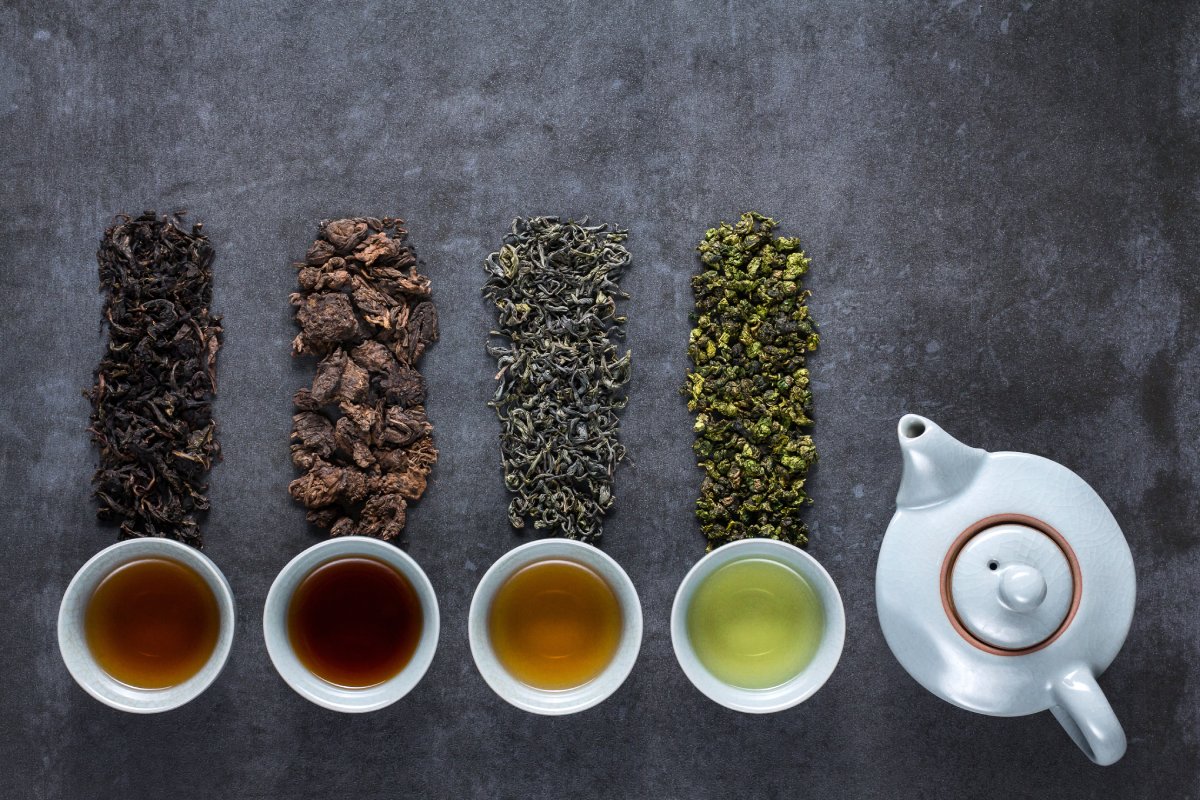When was the last time you checked the label on your tea? With a multitude of options at every turn, it’s tempting to think they all provide a health boost. Think again—some teas might be undercutting your health and wallet with less-than-savory ingredients. How can you distinguish the beneficial from the bogus? This guide isn’t about making you a tea connoisseur overnight, but it is about helping you make informed choices. Are you unknowingly sipping on a blend that’s more harmful than healthful? Let’s shed some light on the good, the bad, and the costly in the world of tea.
1. Avoid: Super Sweet Chai

Pre-packaged chai often comes loaded with sugars and syrups, masking the natural benefits of the spices with unnecessary calories that could impact your blood sugar levels.
2. Stick To: Traditional Chai

Opt for traditional chai blends that focus on spices like cinnamon, cardamom, and ginger. These spices can aid digestion and offer anti-inflammatory benefits without the sugar overload.
3. Avoid: Weight Loss Teas

Teas marketed for weight loss may contain unsafe levels of stimulants or diuretics, which can lead to dangerous health issues and are often not effective in the long term.
4. Stick To: Oolong Tea

Oolong tea can naturally boost your metabolism without the harsh side effects of so-called weight loss teas. Its distinct flavor and health benefits make it a safe choice.
5. Avoid: Energy Teas

Some teas labeled as “energy” drinks are packed with just as much caffeine and additives as a standard energy drink, posing risks for heart health and sleep disturbances.
6. Stick To: Yerba Mate

For a natural energy lift, try yerba mate. It offers a balanced boost of caffeine with antioxidants, without the extreme highs and lows of energy tea products.
7. Avoid: Tea Concentrates

Concentrated tea drinks may offer convenience but often come with a host of additives and preservatives that can negate any potential health benefits.
8. Stick To: Fresh Brewed Black Tea

A freshly brewed cup of black tea provides antioxidants and a moderate caffeine boost without the added chemicals found in tea concentrates.
9. Avoid: Tea With Added Herbs for “Wellness”

Teas with a cocktail of added herbs can sometimes lead to unexpected interactions or side effects, particularly if the sources and quantities of herbs are not well-regulated.
10. Stick To: Tulsi Tea

Also known as holy basil, tulsi tea is renowned for its stress-reducing properties and its ability to support the immune system without the risks of mixed herbal teas.
11. Avoid: Pre-sweetened Iced Teas

These teas are another source of hidden sugars, often containing as much sugar as a soda, which can derail a healthy diet and contribute to weight gain.
12. Stick To: Homemade Iced Tea

Making your own iced tea allows you to control the ingredients and sweetness. Use natural sweeteners like honey or simply enjoy the natural flavor of the tea.
13. Avoid: “Slimming” Herbal Teas

These often contain laxatives like senna, which can cause dehydration and long-term bowel issues when used regularly.
14. Stick To: Licorice Root Tea

Licorice root can naturally aid digestion and soothe stomach issues without the harsh effects of slimming teas.
15. Avoid: Teas With Artificial Coloring

Some teas, especially brightly colored ones, may contain artificial dyes linked to health issues, including allergic reactions and hyperactivity in children.
16. Stick To: Rooibos Tea

Rooibos is naturally caffeine-free and rich in antioxidants, offering a vibrant red color and a smooth taste without any artificial additives.
17. Avoid: Bubble Tea

Popular bubble tea can be fun but is typically full of sugar, and the tapioca pearls add empty calories without nutritional benefits.
18. Stick To: Matcha Tea

Matcha is rich in antioxidants and provides a sustained energy boost without the sugar crash associated with bubble tea.
19. Avoid: Flavored Green Teas With “Natural Flavors”

Image Credit: Pexel / Dmitry Alexandrovich
The term “natural flavors” can be misleading and might mask low-quality tea or unwanted additives.
20. Stick To: Pure Green Tea

Choosing pure green tea ensures you get all the antioxidant benefits without hidden flavors or additives.
Choose Wisely, Sip Responsibly

Navigating the tea aisle doesn’t have to be overwhelming. Armed with this knowledge, you can confidently bypass the gimmicky blends and invest in teas that truly benefit your health and keep your budget intact. Remember, the best choice isn’t just about flavor—it’s about genuine benefits.
The post Not All Tea is Good for You – Avoid These 10 Types, Stick to These 10 first appeared on Mama Say What?!
Featured Image Credit: Shutterstock / Ivanfirst.
For transparency, this content was partly developed with AI assistance and carefully curated by an experienced editor to be informative and ensure accuracy.





